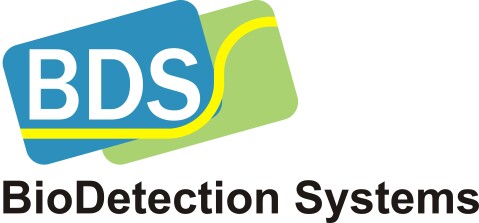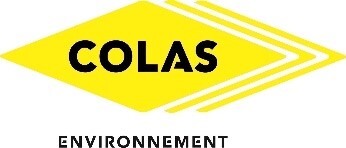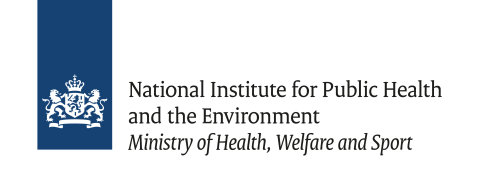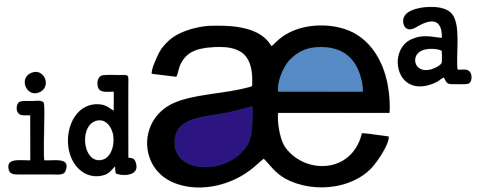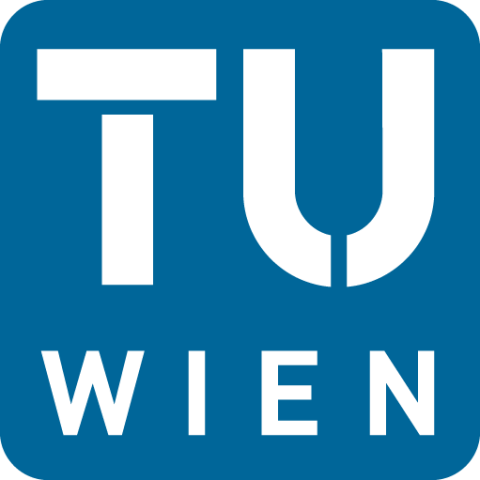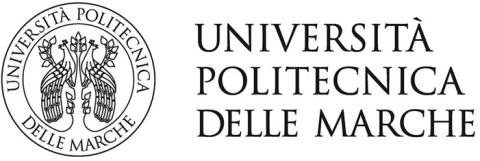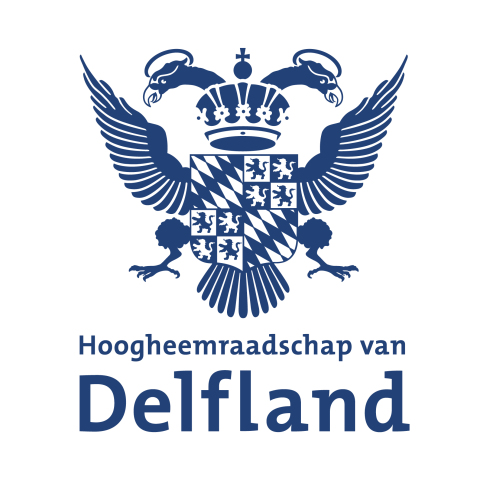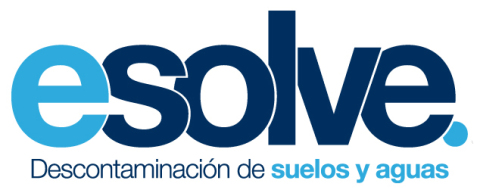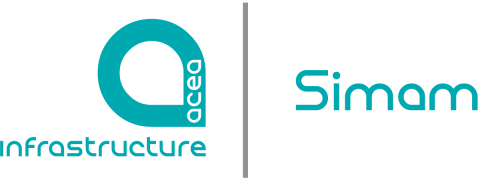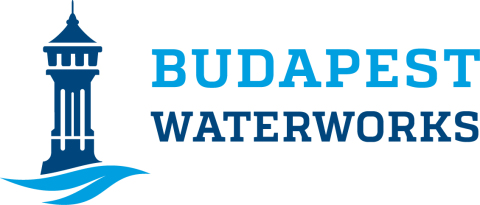Partners
BRGM is the French geological survey (1000 employees), a public institution for Earth Science applications in the management of surface and subsurface resources and risks with a view to sustainable development reporting to the Ministries in charge of Research, Ecology and the Economy. BRGM supports French and European public authorities and has a central role in France for water quantity and quality monitoring, groundwater management and Human-induced risks related to former industrial sites and polluted soils. BRGM conducts experiments from the laboratory to pilot sites and field studies including large-scale monitoring programs on pollutants, soil and water remediation, water reuse and circular economy.
In the PROMISCES project, BRGM acts as coordinator, develops analytical methods for PFAS, implements the use of the pluri metric pilot (PMP), a large installation of 83 m3 simulating natural soil with groundwater to study the transport of PFAS and to perform innovative in situ treatments or PFAS removal and develops advanced modelling tools addressing reactive transport of pollutants. BRGM will take part in the design of the holistic risk-management framework, bringing expertise in substances mapping and engaging with stakeholders.
Kompetenzzentrum Wasser Berlin (KWB) gGmbH is an international non-profit private research centre focusing on urban water systems, including water resource management as well as innovative water and wastewater treatment technologies. Since its establishment in 2001, KWB has initiated and conducted more than 50 research projects related to cutting-edge technologies for urban water management, resulting in more than 200 publications (journals and conferences). KWB also has an extensive history of cooperation in regional, national and European research projects with over 100 partner institutions. In these projects, KWB has contributed specific expertise on groundwater modelling, sewer systems and surface water quality, water/wastewater technology, water reuse and nutrient recovery. KWB is also a frontrunner in dealing with topics crucial for the future management of cities: energy, climate change, resources and digitalization.
In PROMISCES, KWB is responsible for monitoring and modelling PM(T)s in urban runoff and developing a risk-based monitoring concept for urban aquifers, conducting human health risk assessments for numerous case study exposure routes, and providing advanced wastewater treatment design and operational guidelines for managing iPM(T)s and PFAS.
Ineris is a public research institute, with industrial and commercial purposes, under the supervision of the French Ministry in charge of Environment. With a staff of 500 people, the Institute’s mission is to contribute to the assessment and the prevention of accidental and chronic risks caused by economic activities to health, environment, and the safety of people and goods. The Institute accompanies innovation through upstream prevention of the risks generated by new products, new technologies or processes.
Ineris is co-leading the WP5 activities with RIVM. One of its objectives will be to provide an overview of the issues brought by PMT substances, collecting hazard and environmental monitoring data, as well as all information on their uses. Then a framework to support decisions on prevention and reduction of the presence of PMT compounds in the environment for safe resource recovery in a circular economy will be designed. A specific attention will be paid to alternatives to PMT substances. Ineris also contributes in WP1 to the development of a novel QSAR modelling and novel chemical categorization of toxicological endpoints of PM(T) according to the latest standards.
The Institut de Physique du Globe de Paris (IPGP) is one of the major Research institutes in the world regarding Earth Science research. IPGP conducts researches in all fields of solid Earth studies (Geophysics, Geochemistry, Quantitative Geology) by combining terrestrial and marine observation as well as laboratory analysis and measurement with the development of conceptual, analogical and digital models. Prospects are emerging in new and promising fields such as Earth materials under extreme conditions, the early Earth and its first billion years, movements between the solid Earth and its outer envelopes, and the interactions between the Earth sciences and Life sciences. The Biogeochemistry at the Anthropocene of Elements and Emerging Contaminants (ACE) team of IPGP is focusing on the study of multiscale biogeochemical processes occurring in natural and anthropogenic environments (including environmental (bio)technologies). In particular, the team has developed advanced expertise regarding the study of (bio)geochemical processes influencing the mobilization/immobilization mechanisms of trace elements and emerging contaminants in different environmental settings including the critical zone as well as engineered ecosystems.
IPGP will coordinate WP3 and will be involved in the task dedicated to the monitoring and development of resource recovery technologies for the valorization of waste and water streams while minimizing the presence of PFAS compounds in the recovered materials (fertilizers, valuable materials from sediment, treated wastewater).
QSAR Lab is an R&D type company, offering innovative research and services in computer modeling and in silico based on QSAR methods. Founders are scientists at the Laboratory of Environmental Cheminformatics, Faculty of Chemistry, University of Gdansk, who have been dealing with computational chemistry and risk assessment of chemicals for 20 years. The company is made up of highly specialized R&D staff in the field of chemistry and bioinformatics, nanotechnology, toxicology, and solutions in the field of machine learning (ML) and artificial intelligence (AI) for chemistry.
In PROMISCESS QSAR Lab is involved in the development of in silico tools (QSAR/QSPR models and grouping) for delivering predicted phys-chem parameters (for further fate modeling) as well as toxicological activity of PFAS and PM(T) compounds.
UBA is Germany’s central environmental authority and is composed of five specialized environmental divisions and the General Services Division. It employs 1,600 experts such as biologists, chemists, economists, lawyers and engineers from all ecology related disciplines to examine environmental issues from all sides, assess risks and threats and develop viable solutions. Within the department of “Drinking Water and Swimming Pool Water Hygiene” (associated to the division “Environmental Health and Protection of Ecosystems”), the drinking water toxicology research is one of the key underpinnings of the water quality endeavours.
The section “Toxicology of Drinking Water and Swimming Pool Water” will carry out validated in vitro bioassays to assess relevant endpoints (cytotoxicity, genotoxicity, neurotoxicity and endocrine disruption). Appropriate test strategies result in the identification of risks and threats to human health and in conducting hazard and risk assessment regarding drinking water. UBA is responsible for the derivation of health-related indicator values (HRIV).
Berliner Wasserbetriebe (BWB), as a public utility, is responsible for drinking water supply and wastewater disposal for the 3.5 million inhabitants of Berlin and is therefore Europe’s largest integrated water utility. BWB and its predecessor organisations have been responsible for urban water supply and sanitation in Berlin for 150 years. BWB has its own R&D departement and is currently involved as partner or coordinator in 35 projects funded by national and international programmes. Research activities are structured along the water cycle; including water and wastewater treatment, network modelling, hydraulic engineering and new technologies.
Within PROMISCES BWB will lead method development for per- and polyfluoroalkyl substances (PFAS) and other industrial chemicals and integrate them into water quality laboratories practice. The fate of industrial chemicals in wastewater treatment plant effluents, ground and surface waters will be monitored by BWB’s certified laboratory, including both direct and passive sampling approaches. BWB will test treatment trains employing adsorptive technologies like activated carbon for their ability to remove industrial chemicals.
BioDetection Systems (BDS) (30 staff, based in the Science Park Amsterdam) is an SME established in 2001 that develops, markets, and applies bio-based detection methods for a wide range of applications. A focus lies on safety assessment and quality control of chemicals, water and the environment. BDS’ CALUX® methods, are used as alternatives to chemical analytical methods and as animal alternatives and they are successfully applied in more cost effective, sustainable and ethically less controversial screening programs either as stand-alone, in a high throughput mode, or in smart combinations with more conventional technologies. BDS offers its technologies and services world-wide through a network of laboratories and agents. BDS is a frequent partner of national-, and EU funded projects on water safety, and various projects that have contributed to the development and validation of its platform technology for various applications. BDS actively participates in validation and international ring study exercises for its technologies via (inter)national organizations.
BDS is involved in WP1 through the development and application of various in vitro toxicity human cell-based screening tests for single compounds and complex matrices for PFAS and PMT. It supports the implementation of a range of bioassays in demonstration sites in WP3 and 4 and will participation in the exploitation plan development for its bioassays and dissemination activities.
Eurecat is the result of the merging process of the most important Technology Centres in Catalonia, a process that started in 2015 and still ongoing which counts already with the sum of capacities of eight Centres and its multiplying effects. Eurecat is currently the leading Technology Centre in Catalonia, and the second largest private research organization in Southern Europe. Eurecat manages a turnover of 50M€ and 650 professionals, and is involved in more than 200 R&D projects and has a customer portfolio of over 1.600 business clients.
In PROMISCES, the Water, Air and Soil (WAS) Unit is responsible for two case studies: CS#3 Water reuse from a wastewater treatment plant with a high share of industrial wastewater and CS#7 Remediation of groundwater affected by PFAS and organochlorines. WAS unit is in charge of developing new technologies to treat the pollution in these two sites. In addition, WAS also participates in the reactive transport modelling tasks of CS7 and in the human health risk assessment activities. The Applied Artificial Intelligence (AAI) Unit is responsible of designing and developing the Decision Support Framework (DSF).
The soil and groundwater remediation specialist Colas Environnement rehabilitates polluted sites. Colas Environnement carries out clean-up operations of all types in France and internationally by using innovative techniques adapted to the constraints of the site and its pollutants. Colas Environnement is the oldest pollution remediation company in France and is a subsidiary of the Colas Group, a world leader in the demolition and maintenance of transport infrastructures. As pollution treatment is its core business, Colas Environnement has developed numerous techniques and solutions for treating soils, water tables and gases.
As the only pollution remediation company in France among the partners, Colas Environnement will focus on disposal PFAS in soils and groundwater. Colas Environnement will contribute to overcome the obstacles to allow the effective PFAS’s treatment. Our goal will be to develop and test the innovative technologies and approaches imagined by PROMISCES.
DECHEMA e.V. is an interdisciplinary scientific society with more than 5,800 individual and institutional members (including about 500 SMEs), whose activities cover wide areas relevant to the process industries. DECHEMA is dedicated to the support of R&D progress, implementation and innovation realisation in various fields of chemical engineering, environmental protection (esp. water management) and biotechnology. DECHEMA organizes more than 50 events per year, is co-organizer of ACHEMA fair and manages national and European research clusters and projects.
DECHEMA is responsible for the Communication, Dissemination and Exploitation activities in the project. It coordinates stakeholder engagement and the outreach to decision-makers, the scientific society, and the general public to support the uptake of the project results.
RIVM, the Dutch National Institute for Public Health and the Environment (ca 1800 employees) is a governmental research and knowledge institute that aims to safeguard and promote public health and environmental quality. The RIVM provides research support and scientific- and policy advice on matters regarding environmental health, safety and sustainability, and public health to Dutch governmental bodies at the national and international level. In that regard, the main tasks of the RIVM are to conduct research, provide policy advice and recommendations, direct and implement prevention and control response, coordinate intervention programs, and provide information to professionals and the general public.
As co-lead to WP2 and WP5 as well as a leader of tasks the RIVM contributes with expertise on fate and behavior of chemicals in the environment including modelling, in silico approaches for assessment of PMT properties of chemicals and grouping of chemicals, risk assessment for environmental health, stakeholder participation, socio-economic analysis and system analysis and solution evaluation in the context of circular economy.
CSIC is the public scientific institution of reference in Spain and it has four main missions: (1) to foster multidisciplinary scientific and technological research, (2) knowledge transfer to industry and society, (3) education and training of scientific and technical staff and (4) the creation of spin-offs. The Institute of Environmental Assessment and Water Research (IDAEA, Spain) is the CSIC’s reference center on environmental research. Most of the research work at IDAEA is centred on two of the great environmental challenges of our time, namely, the cleanliness and availability of the WATER we drink and the quality of the AIR we breathe. IDAEA has been recognized with the prestigious ‘Severo Ochoa’ Center of Excellence Award. The units contributing to PROMISCES are the Water, Environmental and Food Chemistry (ENFOCHEM) Unit and the Environmental Pollution and Agriculture (EPA) Unit.
CSIC participates in the project developing LC and GC-based non-target screening (NTS) protocols for identification and prioritization of relevant pollutants in waters and plants, and target analytical methods for PFAS and the identified relevant pollutants in the same matrices. It contributes to CS3 “water reuse” and CS7 “groundwater remediation” demo cases by applying the above mentioned methodologies.
Deltares is an independent institute for applied research in the field of water and subsurface. Throughout
the world, Deltares works on smart solutions, innovations and applications for people, environment and society. Deltares employs over 800 people and is based in Delft and Utrecht in the Netherlands. The main focus is on deltas, coastal regions and river basins. Managing these densely populated and vulnerable areas is complex, which is why DELTARES works closely with governments, businesses, other research institutes and universities at home and abroad. The motto of Deltares is Enabling Delta Life. As an applied research institute, the success of Deltares can be measured in the extent to which our expert knowledge can be used in and for society.
Deltares will lead the improvement of innovative modelling which can assess human health and environmental risks on different time and spatial scales. Furthermore, Deltares activities will be focussed on the coupling of fate and transport models to achieve a model train and apply to the different case studies. Deltares will also contribute to the development and validation of analytical methods for the detection and quantification of
selected PFAS and industrial chemicals and dissemination of the developed knowledge to the different stakeholders.
TU WIEN, which was founded in 1815, is one of the major universities in Austria and is well-known as the first university of technology within present-day German-speaking Europe. TU Wien today has over 5,000 employees, finds high international and domestic recognition in teaching as well as in research. The university services high-tech problem solving and expertise for industry and economy and is highly esteemed by its partners. Two institutes of the Faculty of Civil Engineering will be involved in the project, namely the Institute for Water Quality and Resource Management (IWR) and the Institute of Hydraulic Engineering and Water Resource Management (WIH). They are both well-established centres of research, innovation and support to public authorities in the fields of surface- and groundwater modelling, water quality and resource management, water quality monitoring techniques and wastewater treatment process and technologies.
TU Wien is involved in WP1, WP2, WP6 and WP7. The work will contribute mainly to WP2 in the research of fate, transport and exposure of PM in the environment, specifically contributing to the project through a large catchment scale case study in the Danube basin semi-closed water cycle. Results and technologies developed through the case study will be summarised to the stakeholders to help meet the goal for a safer and more sustainable environment.
The German Federal Institute of Hydrology (Bundesanstalt für Gewässerkunde) is the national research institute of the Federal Government for research and assessment in the fields of hydrology, water resource management, ecology, and water conservation. BfG has a strong expertise in analysis and monitoring of environmental contaminants in a variety of matrices and in the elucidation of unknown organic compounds and transformation products.
BfG is involved in WP1,WP2 and WP4, focusing on targeted and nontarget screening of PM(T) substances in the water cycle.
The Università Politecnica delle Marche (Polytechnic University of Marche, UNIVPM) is a public university established in 1971 in Ancona (Italy). Within UNIVPM, the Water and Waste Environmental Engineering Lab (WWEELab), at the Department of Science and Engineering of Materials, Environment and Urban Planning (SIMAU), coordinates European and International clusters for circular water management (e.g. Water Europe) and resource recovery (e.g. International Water Association), implements several EU-funded R&D&I projects, and provides scientific support to water industries and utilities. The WWEELab R&D&I main fields are addressing sustainable resource recovery in the urban and industrial water cycle, stormwater treatment and management, digital solutions for carbon and environmental footprinting, assessment and auditing, advanced water and wastewater treatment, waste treatment and valorisation.
In PROMISCES, the UNIVPM team is scientific leader of two case studies and will address research activities to two Circular Economy routes: (i) Nutrient and energy recovery from sewage sludge and its valorisation as soil amendment in agriculture and (ii) Materials recovery from dredged sediments and their valorisation for eco-materials and civil engineering.
CBT is a local water administration created in 1988 and composed of 64 municipalities in five different regions of Catalonia (Barcelonès, Moianès, Osona, Vallès Occidental and Vallès Oriental) with a population of about 2.400.000 inhabitants. The main objective of CBT is preserving and improving the good health of the rivers in its area of actuation. To achieve this objective, CBT has different lines of action. First, the management of sanitation infrastructures: 1300 km of municipal sewers, 300 km of main sewers and 27 Waste Water Treatment Plants, as well as the control of industrial discharges, with almost 6000 potentially polluting establishments. Secondly, the conservation and improvement of the river basin through recovery and restoration projects and environmental education activities addressed to different segments of population. Finally, CBT gives support to all consortium members in different activities within its competences.
In PROMISCES, CBT is involved in WP4, providing access to a real-life wastewater infrastructure (CS #3) in the Besòs river basin. The innovative solutions developed in the project will be implemented on a pilot scale in the WWTP installations and combined with existing artificial wetlands (Urban River Lab) for reducing the transfer of microcontaminants in the reused water for agricultural irrigation. CBT will actively participate in the sampling campaigns and in the construction and operation of the implemented pilot-scale treatment.
Delfland Water Authority is a governmental organization in The Netherlands. It is responsible for water quality and quantity in the region covering Delft, The Hague and the Northern part of Rotterdam. Delfland has 4 wastewater treatment plants (WWTP) in its area, ranging from 120.000 to 1,400.000 person equivalents. Our
WWTP Harnaschpolder is one of the largest treatment plants in Europe. It also offers modern research facilities and a test location. The 4 WWTPs produce a substantial amount of waste activated sludge, which is then digested and transported to an incineration facility, of which Delfland is a stockholder.
Delfland will contribute to the project by offering an Massive Open Online Course (MOOC) on Zero Pollution Solutions concerning PFAS compounds in the water, soil and sediment cycles in order to ensure long-term and future exploitation of knowledge in the academic world.
ESOLVE is an environmental consulting and engineering firm that is specialized in subsurface and geology. ESOLVE headquarters are located in Barcelona. ESOLVE's main objective is to always seek efficient and profitable solutions for its clients in the field of environmental pollution, offering value-added solutions based on knowledge and innovative technologies of proven effectiveness to its clients. This is possible thanks to the work we do in collaboration with national and international technology and innovation centres and our extensive technical experience in developing appropriate solutions to our customers' most complex problems. ESOLVE's organization and work methods are based on criteria of efficiency, rigour, dedication and exhaustive control of all aspects related to the project underway. ESOLVE believes in the importance of Research and Development and therefore follows the latest advances in technology and applies them to decontamination projects. The commitment to innovation is real and customers benefit from its full potential.
ESOLVE has provided the CS7 sites in Spain and is involved in WP3. ESOLVE has characterized the site’s subsoil and will implement several experimental technologies for PFAS remediation at the sites. ESOLVE will control the pollutants evolution in groundwater to improve the efficiency of the implemented technologies.
.png)
Italy
Acea Elabori is an Acea Group company that provides services of laboratory, engineering, research & innovation in water, environment and energy fields. The main customers of Acea Elabori are the Acea Group companies that operate in management of integrated water cycle, waste treatment or energy production. Acea Elabori has 293 employees divided in 3 main departments: Laboratories and Research, Engineering and Construction. The Laboratory and Research Department includes the following units: Laboratory, Research, Geo Smart, Laboratory System Support and Technological Development. The Laboratory operates in control, compliance and quality verification activities in the environmental compartment. It has over 100 advanced instruments, such as UPLC / HRMA-HRMS, LC/GC-MS/MS, ICP-MS, PCR to perform routine and specialized analysis. Every year more than 50000 samples are analyzed for more than 1200000 analysis. The laboratory is accredited for 120 tests according to the international standard ISO IEC EN UNI 17025:201. About 70 employees work in the Laboratory and Research Department and about 20 resources are involved in specific R&D activities. The department has about 800 laboratory tools and measurement systems for environmental monitoring.
Acea Elabori is involved as analytical partner in WP1, WP3 and WP4. In WP1 has been indicated as sub-task leader in development and validation of analytical methods for the detection and quantification of selected PFAS on specific matrices. Acea Elabori collaborates in other subtasks for development of workflows for large suspect screening and database-assisted analysis. In WP3 and WP4 it will be involved in analytical activities on dredged sediments, sewage sludge, landfill leachate and RO, NF concentrate and permeate.
Sofia University ‘St. Kliment Ohridski’ is the first, largest school of higher education and one of the most prestigious scientific centres in Bulgaria with strong research, development and innovation activities. Currently, Sofia University produces more than 20 % of the scientific research output of the country. UNISOFIA is involved in PROMISCES through the Centre of Competence “Clean technologies for sustainable environment – water, waste, energy for circular economy“ – Clean & Circle, financed by Operational Programme “Science and Education for Smart Growth” and the EU. In PROMISCES UNISOFIA collaborates with Municipal Enterprise for Waste Treatment – Sofia.
UNISOFIA is involved in WP4 and WP5. UNISOFIA is responsible for the research activities in Case Study #4 (Sofia, Bulgaria) on Innovative landfill leachate treatment for near zero pollution discharge. Ten municipal landfills are considered for the investigation, including in-depth mass flow analysis in some of them. Plasma treatment in laboratory conditions of different streams/sludge taken from leachate treatment plants for PFAS reduction is another core research activity. Among the expected contributions of UNISOFIA are evaluated efficiency of the studied technology, assessment of impaired biological activity during landfill leachate treatment and verified possibility to extend sludge lifecycle turning it into a usable product.
SIMAM is an Italian engineering and construction company specialising in water treatment plants and other environmental services. It serves responsible businesses which respect people and places by striving to lessen their environmental impacts. SIMAM is based in Senigallia (Marche Region) and is well established on the Italian territory. It also has other two branch offices based in Potenza (Basilicata Region) and Cagliari (Sardinia) and a carpentry office in Pesaro Urbino (Marche Region). Established in 1994, SIMAM has been operating for more than 26 years and employs over 100 skilled technicians and graduates. The company works on various industrial sites (some are also included in the National Priority List (Siti di Interesse Nazionale). SIMAM has been part of ACEA Group since May 2020 and it has always been a reliable technological and operational partner in the above areas for its customers, with particular reference to environmental studies, engineering, water treatment, management of liabilities and global services, with an approach that leads to environmental excellence and added value.
SIMAM is involved as technology provider in WP4, with particular reference to the Italian application of Case Study 4. SIMAM will identify and provide the RO/NF pilot plant and collaborate with UNIVPM during the experimental test. It will also support UNIVPM for the implementation of a lab-scale co-pyrolisis treatment and conduct a feasibility assessment of the up-scaling of the co-pyrolysis treatment for a potential large-scale application.
MLS is a young Biotech start-up company with a mission to valorize valuable biological activities from nature’s biochemical diversity such as bioactive small molecules and enzymes. The intended application markets range from bio-based industries, were biological catalysis can be implemented to make second-generation processes more sustainable, to the clean-up of xenobiotics in soil bioremediation, and aquaculture and plant production where novel natural alternatives are needed to combat pathogens and facilitate growth. By using methods such as HTP biological reporter assays, NGS and molecular biology tools, tailor-made solutions are provided for the discovery, small scale production, toxicological assessment and mechanistic unravelling of activities of interest and their respective formulations. MLS was raised in 2011 as a result of PPP’s with academia in the EcoGenomics consortium. It falls under the BioDetection Systems (BDS) holding and it is physically embedded in its labs at the Amsterdam Science Park.
The main activity of MLS will be in WP3 where enzymes (laccases and mn-peroxidases) isolated from multiple species of white-rot fungi will be used, in combination with mediator molecules, to degrade PFAS compounds. As different fungi produce different extracellular enzyme cocktails, enzyme extracts from eight different species of fungi will be screened for optimal breakdown activity. This will be in combination with two different mediator molecules that should facilitate PFAS breakdown. After screening, the fungus (or fungi) with the highest degradation potential will be selected and will be used for the pilot experiment. Large quantities of fungus will be cultured and enzymes will be isolated an purified from the culture. These enzymes will be used in the pilot experiment to assess degradation capability.
Budapest Waterworks (BWW) has been operating for over 150 years, providing safe drinking water for the capital and the agglomeration. Drinking water treatment is based on bank filtration, with a 450.000 m3/d average daily production. More than 750 wells are in operation with different hydrogeological characteristics. Also, the production sites are situated upstream and downstream the city, therefore are suitable to assess its effect on water quality. The main wastewater treatment plant is located 8 km upstream from the closest well of the southern drinking water production site. The total amount of wastewater dischargeinto the Danube from this WWTP is 350 000 m3/d.
BWW is involved in Case Study 2 and is going to provide information for both types of modelling for the Hungarian territory in general and two bank filtration sites at Budapest. Samples will be provided from river Danube and other Hungarian surface waters, river bank filtrate, wastewater influent and effluent and wet precipitation as well as required side specific information on subsurface conditions and water levels at the Budapest bank filtration sites.
In Extenso Innovation Croissance is a French consulting firm specialised in innovation management and with contact points in all European countries. Founded in 2002, IEIC supports the development of innovative projects and represents a team of 100 consultants from the engineering and marketing/finance sectors. With more than 1000 projects carried out and 600 clients supported in all application markets over the last 16 years, IEIC has built up a strong experience and expertise in innovation management. The firm therefore has strong skills in the management of innovative European projects.
IEIC will assist BRGM in WP 7 - Management and will provide expertise in the management of collaborative projects. It will also be involved in WP6 - Exploitation and Dissemination by carrying out a market analysis, supporting exploitation routes and analysing transfer opportunities. Finally, IEIC, as a specialist in sustainable development activities, will be involved in WP5, notably on Life Cycle Assessment (LCA), and will carry out an environmental impact assessment of one of the case studies.
SinapTec is a SME based in the north of France since 1984. Their core activity is the development and manufacturing of power ultrasounds devices 100% Made In France working in various activity fields: cleaning, welding, cutting, defoaming, sonochemistry and so on. This innovative technology allows SinapTec and the user to follow and track the ultrasonic data and to undestand the ultrasonic effect in the desired application with a 100% digital and Industry 4.0 oriented technology since 2010. Half of the team is dedicated to the continuous development of SinapTec's ultrasonic solutions which makes the company a strong partner for the use of ultrasounds in R&D and industry activities.
SinapTec is involved as ultrasonic technology provider in WP3 which aims to degrade PFAS compounds at lab and larger scale. SinapTec's tasks are to design ultrasonic systems that can offer a chemical effect on PFAS compound and to understand what chemical degrading routes of these compounds are using ultrasounds. Further, they will help involved partners understand ultrasounds basics.

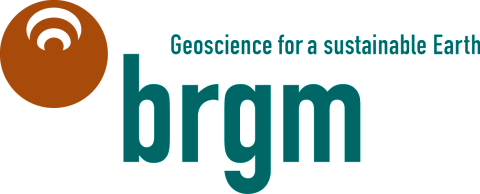
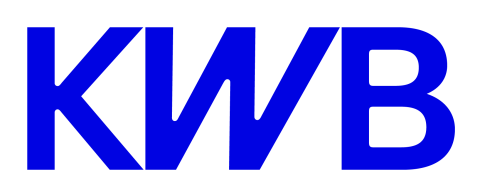
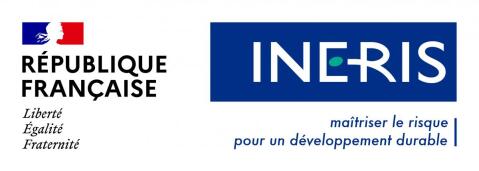
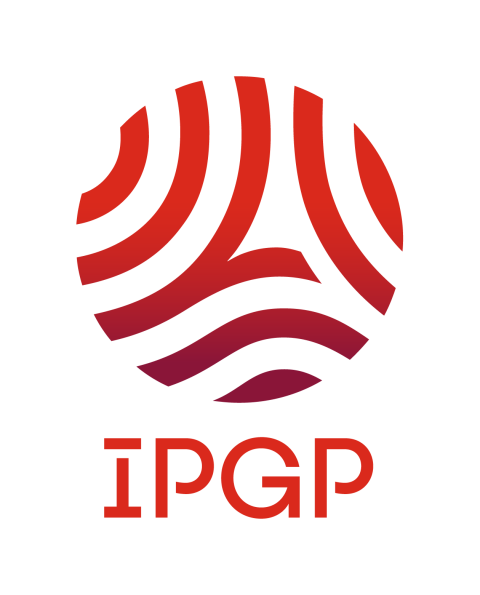

.jpg)

